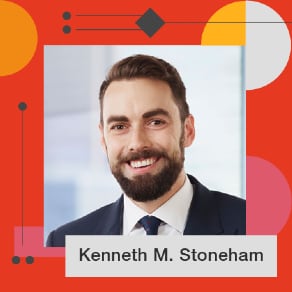
Amid today’s unprecedented pace of change, Canadian banks are recognizing the significance of workforce transformation in building resilience to and successfully navigating disruptive forces like generative artificial intelligence. Banks need to consider people-focused leadership strategies that will maximize human potential and create a dynamic workforce that’s more adaptable to change. Cultivating a culture that fosters a growth mindset and empowers both the organization and its people is key to helping banks deliver on their ambitions and create sustained value and impact.
In this Transformation Talks video, PwC Canada’s Kenneth Stoneham and Soula Courlas explore what a people-focused strategy looks like in more detail. Among their recommendations is focusing on the key role of leaders in creating environments where employees feel safe experimenting with new ideas without fear of failure as well as the importance of addressing peoples’ anxieties about change and disruption that may be holding them back.
Ken: Canadian banks are managing through so much change right now, and significant transformations have become the new normal. The pace of technology change continues to accelerate. And with the promise of generative AI and other emerging technologies, we can only assume that acceleration will continue.
At the center of all this change and transformation and the benefits that they can provide are people, so what can Canadian banks do to support their people and address the uncertainties that they might be feeling, and ultimately help them help their people to deliver on the bank's ambitions? Joining me today is Soula Courlas to have a conversation on this topic. Thanks for joining Soula.
So to start things off, what are some of the trends impacting Canadian banks today and why is the workforce so important as it relates to these trends?
Soula Courlas: One, top of mind, is risk and regulatory compliance, including greater attention on culture risk, which is all about the behaviors that pose a risk for the organization, risk culture, which is around the risk tolerance and processes and practices that are in place to monitor that risk and workforce risk. Another really emerging topic right now, which is related to the shrinking and changing talent pools, demographic shifts, and the technology disruption.
Another hot topic, obviously a trend is around digital transformation and the acceleration of that, the pace of change is unprecedented. Virtually every aspect of the bank's context is experiencing change, whether it's through an M&A, an automation, new regulatory mandated changes, strategic initiatives, you name it.
And the topics of ESG and equity, diversity and inclusion and our commitments to government, society employees. And last but not least, building the workforce of the future and addressing challenges right from Gen Z talent who were schooled and entered the workforce during the pandemic, making hybrid work, really truly work, navigating an aging workforce and an increasing skills mismatch and gap with the workforce and outcomes of the transformation agenda that I started out with.
And to answer the second part of your question, people are at the core of all of these changes, anticipating them, making them, sustaining them. People include leaders who play an even more pivotal role in today's world of work in how to empower and engage the workforce to withstand this pace of change and to find that grounding that is key to resilience.
Ken: That's quite a list and definitely a lot to talk about. And as I mentioned in the opening remarks, generative AI is obviously a critical topic as we discuss this issue. So what are some of the things that organizations should be thinking about in terms of generative AI, their workforce and getting the most out of both of those?
Soula Courlas: It's evolving every day and we're all learning about the implications from disruptive right through frankly to welcoming. The difference with generative AI is that it has entered the realm of the knowledge worker and replicates higher order knowledge based tasks. It puts pressure on having a comprehensive workforce strategy and technology stack that puts skills front and center. There is a need to upskill, re-skill and in some cases de-skill and place greater emphasis on maximizing those uniquely human skills like compassion, empathy, leadership, teamwork and creativity.
Ken: So what are some of the key things banks should be thinking about in terms of getting their people on board to achieve the most out of these transformations?
Soula Courlas: We need to make it easy for people to see how their own sense of purpose or how their own unique capabilities can contribute to a bigger mission-driven purpose for the organization. We need to seek to understand what is holding people back or creating friction that has them not wanting to engage and address the root of things.
And also important is to keep a pulse on how much change is going on simultaneously and watch for signs of fatigue and saturation, which includes markers like around quality, timeliness, resistance, etc.
Ken: So clearly leadership is extremely important and we're certainly asking a lot of our leaders today. So what are some of the things banks can be doing in terms of enabling their workforce and their leaders to thrive in this environment?
Soula Courlas: A few things come to mind. One of them is to reexamine the pace of work and find ways to make space for thinking time or ways to reduce that cognitive overload. Interpersonal conflict is another key impediment to workplace wellbeing. People thrive when they feel connected, respected and included.
You know, it starts with leaders who understand how the brain works in terms of shifting people from that fixed mindset, which is more focused on performance and perfection, to a mindset that is focused on growth or a learning mindset that is critical to innovation and to the transformation agendas we have in front of us. Leaders can also work to help make changes and disruptive forces friendly by being aware of the fears that they may evoke and helping people see that bigger, longer term picture of the benefits.
Ken: Certainly it's exciting opportunities for banks to lean in and use this as an opportunity to address the challenges and actually develop a competitive advantage. So if you had to leave our viewers with a few key takeaways on the topic, what would they be?
Soula Courlas: Lean into your purpose. Ensure your workforce. Know they're making a difference now and in the future. Identify those core skills and refresh your talent strategy to attract and retain the skills. Help managers help employees provide upskilling on managing in a hybrid world, how to spot microaggressions and toxic/taxing behavior and burnout, and how to create a culture of innovation and collaboration. Consider how technology and AI supported solutions could actually improve ways of working. And last but not least, provide clear communication that builds trust, engagement, and authenticity.
Ken: This has been so interesting and insightful. Thank you so much, Soula, for talking to us.
Soula Courlas: Thank you, Ken, for having me. This has been an absolute pleasure. I love talking about all this. Thank you.
Ken: And thank you so much to our viewers for taking part in this discussion. And what I'd say is if you do want to have a discussion about how you can support your people and enable this transformation and change while bringing your people along, please don't hesitate to reach out to us. Thank you.
"Leaders can also work to help make changes and disruptive forces friendly by being aware of the fears that they may evoke and helping people see that bigger, longer-term picture of the benefits."
About the speakers

Soula Courlas is a Partner in the Workforce of the Future, Financial Services practice, and National Leader, Organization Design Services. With over 25 years of experience, Soula has led transformational programs reaching more than 80,000 employees and continues to advise senior business leaders on the value of driving a purpose-led and strategically aligned people agenda that creates the conditions for success in an evolving world of work.

Kenneth Stoneham is a risk assurance services Partner and Canadian Assurance Operations Leader at PwC Canada. With over 10 years of experience, Ken specializes in risk management and information systems with a particular focus on the financial services industry.
Contact us
























